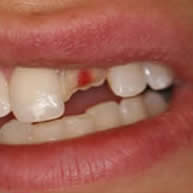Chronic stress has proven to have many potential impacts on your health, including anxiety, depression, migraines, and backaches. Did you know that stress can also affect your oral health? Your mouth, gums, teeth, and jaws can suffer the effects of stress in your life as well.
Causes of stress
Major life events usually bring stress with them, such as accidents, deaths, births, job changes, and other big events. However, it’s been shown that the daily hassles you experience on a regular basis cause a great deal of stress and can damage your health. Minor irritations like traffic jams, lost keys, simple arguments, and spills on the carpet all can build up into stressful results.
Ways stress impacts your mouth
Pressures in life may not only ruin your mood, they can impact your oral health. When you are stressed out, your body releases a hormone called cortisol. It can harm your immune system, making it harder to fight infections. Also, increased cortisol levels can make your body produce more acid, causing your mouth to be more susceptible to the effects of bacteria. Your sugar regulation and digestion are also affected.
Stress-related problems
Here are some oral health outcomes of stress that may occur:
• Gum disease that is worsened with inability to fight infection
• Neglected dental hygiene
• Increased caffeine, alcohol, tobacco or sugar consumption which promote tooth staining and plaque buildup
• Tooth decay due to the ideal environment for mouth bacteria
• Decrease in minerals in the body like calcium, which is needed for strong teeth and bones
• Teeth clenching or grinding
• Mouth ulcers and cold sores
Managing stress
The goal is to get control of your stress so that your oral health and overall health aren’t at risk. See your dentist regularly for help identifying any stress-related dental issues, and ways to treat them. Sometimes breathing exercises, yoga, massage or physical therapy, and improved sleep patterns are ways to relieve stress.






